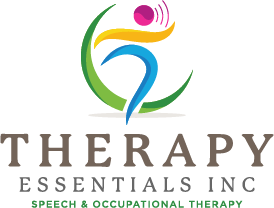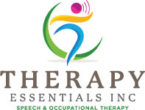What is Speech Therapy?
What is Speech Therapy?
Speech therapy includes the evaluation and treatment of communication and swallowing disorders. Speech and language development usually follows a typical pattern in children. If you have concerns about your child’s speech, language, or feeding development, our therapists are able to conduct an evaluation. After the evaluation is completed, a comprehensive treatment plan is developed with your input. Our therapist’s will train parents, caregivers, and teachers (when needed) in your child’s therapy techniques to aid in mastery of skills and long term generalization.
Speech and Language Disorders in Adults are usually the result of an injury or illness that reduces a person’s ability to communicate or eat/swallow. Our therapists are able to conduct an evaluation and help to develop a treatment plan to overcome or minimize deficits.
We Evaluate and Treat A Variety of Delays, Disorders, and Conditions in patients of all ages, Including:
Apraxia of Speech
Articulation and Phonological Disorders
Cleft Palate and Craniofacial Disorders
Feeding and Swallowing Disorders
Language Based Reading Difficulties
Social Skills and Pragmatic Difficulties
Accent Modification
Stuttering and Fluency Disorders
Language Difficulties and Disorders
Myofunctional Disorder/Tongue Thrust
Language Difficulties Associated with Auditory Processing Disorder
Language Difficulties Resulting from Hearing Loss
Our Services Include:
Augmentative and alternative communication (AAC) is the use of different communication methods to support, enhance, or supplement the communication of individuals. These individuals are not able to independently and verbally communicate their own thoughts, ideas, needs, and desires. Users of AAC vary, and may include individuals with autism, cerebral palsy, or brain injury, and can vary from toddlers to the elderly.
A swallowing disorder, also called dysphagia, is a difficulty or malfunction in some part of the swallowing process. Video fluoroscopic swallow studies help diagnose a disorder and help us determine the most appropriate treatment protocol.
For sensory motor based feeding problems, such as “picky eaters, ” we offer comprehensive feeding plans using a sensory motor approach to increase the variety and amount of foods consumed.
*We also offer neuro muscular electric stimulation as a therapy technique when appropriate for those with decreased muscle movement to help strengthen the muscles used for eating and swallowing.
Language development involves the process of how children learn to understand sounds, words, phrases, sentences. They then begin to speak using sounds, words, phrases, and sentences. Language development is inclusive of receptive language (what is understood), expressive (what is spoken) and written (the written expression of language). Language therapy helps improve the understanding and use of age-appropriate vocabulary, concepts and syntax.
This is also referred to as Central Auditory Processing Disorder (CAPD). People with APD have difficulty interpreting the messages being sent to the brain. There is a neurological basis to APD, those affected with APD may or may not have hearing loss, and usually have normal intelligence.These disorders involve an impaired ability to attend, discriminate, recognize and/or comprehend language through the auditory channel. In addition to hindering speech and language development, APD can affect other related areas of learning, particularly reading and writing. Children often miss parts of messages or misunderstand information. This is further complicated while in a noisy environment or when there is background noise such as in a classroom setting. We use a variety of very successful programs that create an optimal learning environment for brain plasticity, and have proven successful in changing the brain’s ability to process auditory information.
A tongue thrust is a forward push of the tongue upon swallowing which is a normal reflex in babies. With normal growth and development this reflex should decrease and be eliminated. Children displaying a prolonged tongue thrust may have an impairment of speech clarity and/or dental issues. Speech pathologists assess myofunctional swallow and treat it through a series of specified exercises. Dentists and Orthodontists refer children to speech therapy since orthodontic issues are not usually addressed until the tongue thrust is corrected.
Individuals who experience symptoms such as hoarseness, breathy or nasal voice quality, or voice loss often have a voice disorder. Working with the patients’ ENT, the speech language Patholgist develops a treatment program to improve vocal quality.
Individuals who stutter have frequent disruptions in the flow of their speech. It can be characterized as getting stuck on, repeating, prolonging sounds, syllables, and words. We offer treatment programs that help to promote fluent speech inclusive of stuttering education and management of dysfluent moments.


